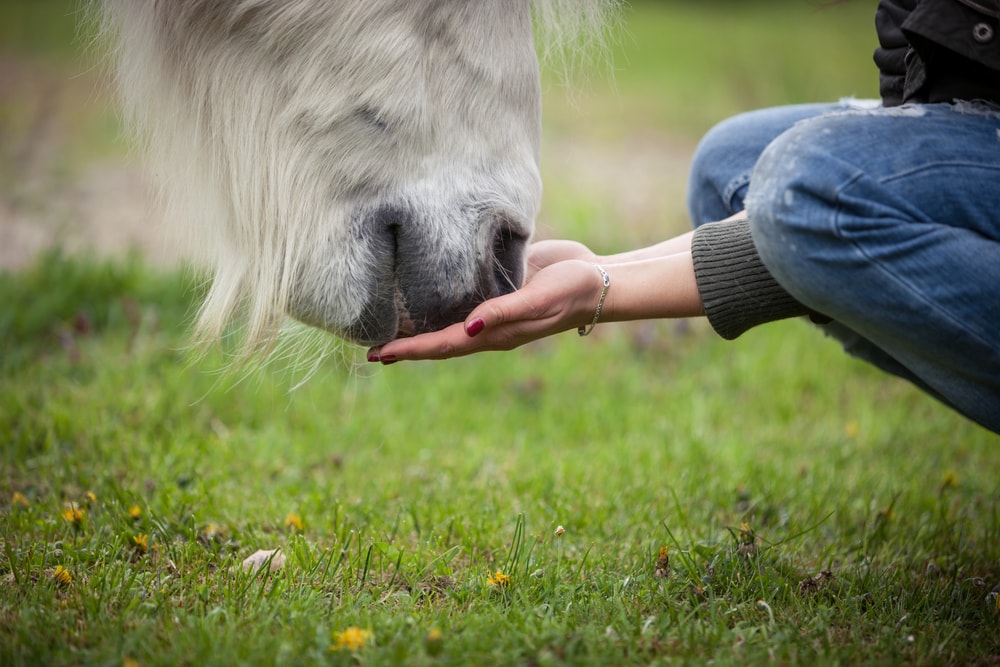
Horses and Mental Health: How Equine Therapy Works
Pets have been a part of our lives for thousands of years. Some of the earliest reports of pet-facilitated therapy date back to the 17th century, when John Locke advocated giving children “dogs, squirrels, birds or any such thing to look after as a means of encouraging them to tender feelings and a sense of responsibility for others.” This method of therapy was also found in 18th century England, where pets were used as positive reinforcement to help patients learn to care for themselves.
Since that time, pet therapy has been used for a wide variety of conditions, including PTSD, depression, anxiety, and various childhood emotional disturbances. Animal therapy can be used in a variety of settings as well, such as skilled nursing facilities, long-term care floors of hospitals, and even in prisons for inmates fit for pets.
And the latest animal to be used for this kind of therapy? Horses. Several and mental health treatment centers use equine therapy to help individuals suffering from substance abuse or mental health conditions improve their physical and emotional well-being. From benefits like strengthening one’s core to alleviating depression and anxiety symptoms, equine therapy has been found to be a surprisingly effective method of treatment.
What is Equine Therapy?
In equine therapy or equine-assisted therapy, participants therapeutically interact with horses through means like feeding, leading, and grooming while accompanied by a member of their treatment team. Instead of the traditional setting of a therapist’s office, equine therapy brings people out into nature. An outdoor environment can allow for individuals to access all their senses and feel more grounded while working on their mental health and .
Equine therapy has proven beneficial for addressing several mental health conditions and substance use disorders. Some of the most common conditions include various types of anxiety, post-traumatic stress disorder, trauma, disordered eating, developmental disorders, behavioral disorders, substance use disorder treatment, and attention-deficit hyperactivity disorder.
The goal of equine therapy is to help individuals develop vital coping skills such as emotional regulation, responsibility, and self-confidence. The equine-assisted approach can also help individuals learn empathy, impulse control, problem-solving skills, social skills, trust, and developing and maintaining healthy relationships. While this method of therapy is still relatively new, it has been rapidly growing in popularity due to developing evidence of its effectiveness for a wide range of conditions.
Who Can Benefit from Equine Assisted Therapy?
Equine-assisted therapy can be used for a variety of conditions and demographics. This allows the therapy model to be easily integrated into multiple therapeutic settings, such as mental health and treatment centers. Here, horses can be utilized in treatment and counseling sessions for families, groups, individuals, children, and adults.
Young children may especially stand to benefit from this mode of therapy. Kids can find it difficult to process or open up to a stranger about painful emotions and experiences. Equine therapy can be less intimidating than other treatment methods, making this a great resource for children and even adults who are hesitant towards treatment.
Equine therapy can also be helpful for those who struggle with mood disorders and emotional regulation. Though these large and majestic animals are patient, they usually cannot tolerate aggressive or erratic behavior. Because of this, individuals in equine-assisted therapy typically learn that kindness, patience, and a caring touch goes a long way.
It should be noted that equine-assisted therapy is considered an alternative treatment method, and therefore should not be used as standalone treatment for mental health or disorders. It is often used to supplement evidence-based treatments such as cognitive behavioral therapy, to achieve a more holistic and well-rounded treatment approach.
Benefits of Equine-Assisted Therapy
Equine therapy has specific unique elements to the therapeutic process not typically found in other forms of therapy.
First, horses are unbiased and non-judgmental by nature. Professional therapists strive to offer a safe and supportive place for their clients, but clients may still struggle to speak freely and open up about their thoughts and emotions. The process of building a healthy working therapeutic relationship between a client and therapist can take time, while horses can immediately provide a sense of peace and comfort without rapport needed.
Horses are also observant. They are sensitive to movements and even emotional states. Horses tend to mirror clients’ behavior or emotions. This clear sign of empathy allows clients to feel more connected in their therapy sessions. It also provides clients the opportunity to develop self-awareness. By using the horses’ behavior and interactions as a form of feedback, it gives the clients opportunities to check in with their own emotions and behavior. This can help them learn to better regulate their emotions and learn healthier ways to express their feelings.
Another benefit is the maintenance that horses require. To keep a horse happy and healthy, they require food, water, exercise, and grooming. Being responsible for the care of a horse can help establish healthy routines and structure. This process can also foster feelings of empathy and compassion for other creatures. This can be highly beneficial for individuals struggling with apathy and a lack of compassion. It can also be helpful for recovering individuals who need healthy, safe routines that do not involve drugs or alcohol.
Important Considerations for Equine Therapy
There are important factors to keep in mind when considering horse therapy for mental health. First, consider physical and medical capabilities. Horses are large animals. When fully-grown, some weigh well over 1200 pounds. If you struggle with specific medical conditions such as back-related health issues, it is vital to speak to your primary care provider to determine if equine-assisted therapy is a good fit for your treatment program.
It is also important to consider how far along you are in treatment, especially in a substance abuse program. If and substance use issues are a concern, it is vital to complete a comprehensive detox program before beginning an equine-assisted therapy program. This is important for the safety of the horse and the patient.
Your comfortability around horses should also be gauged. Although equine-assisted therapy can be highly beneficial across many conditions, individuals will not benefit if they are afraid of or uncomfortable around horses. It is important to work closely with your mental health or treatment provider to determine if using horses for therapy is right for you.
At The Meadowglade, our professional treatment team will work with you to design a treatment plan focused on your specific needs and goals as you work towards physical, psychological, and spiritual wellness. If you’d like to learn more about equine therapy benefits and how The Meadowglade incorporates it into our own programs, please contact our admissions team today.


